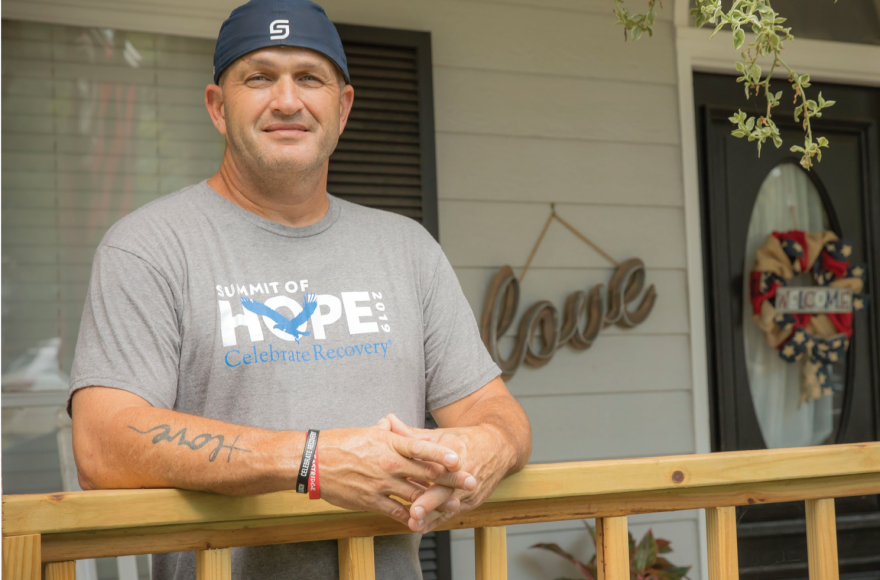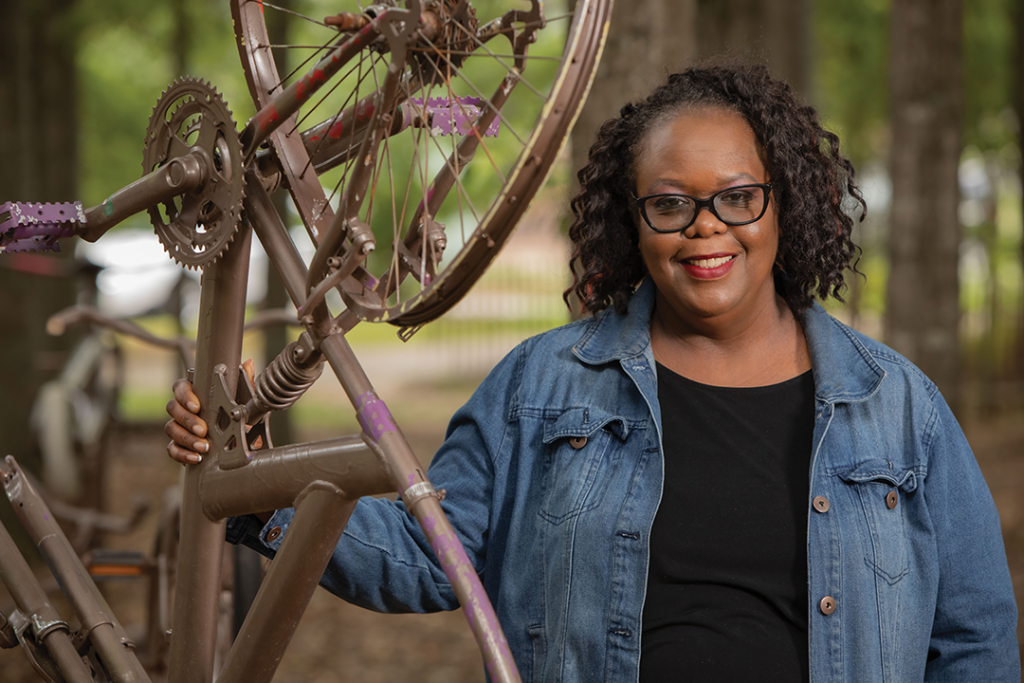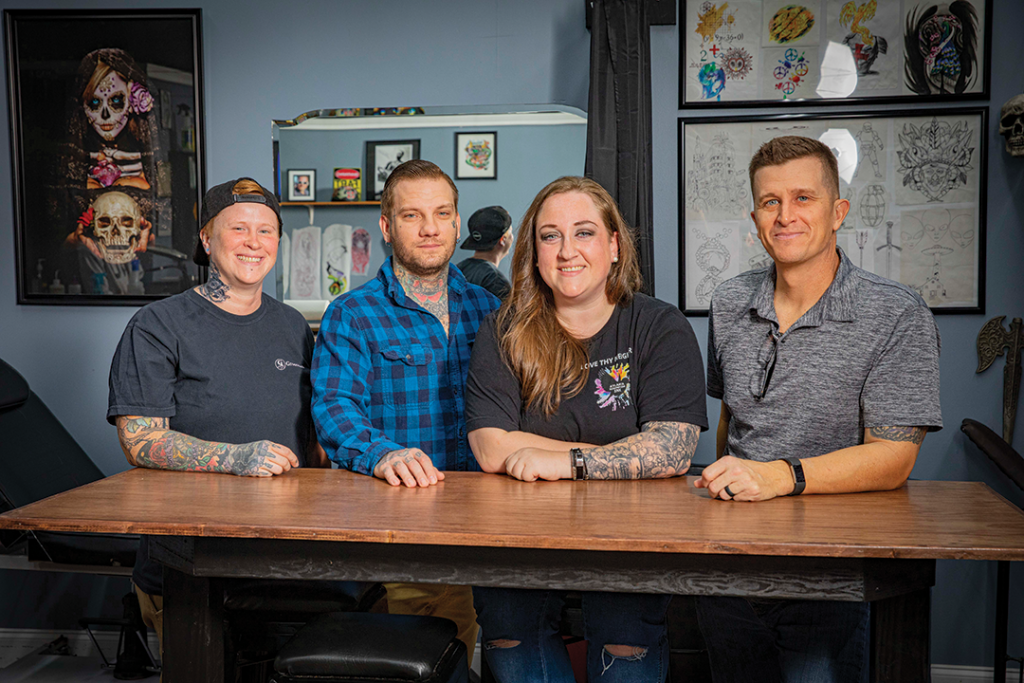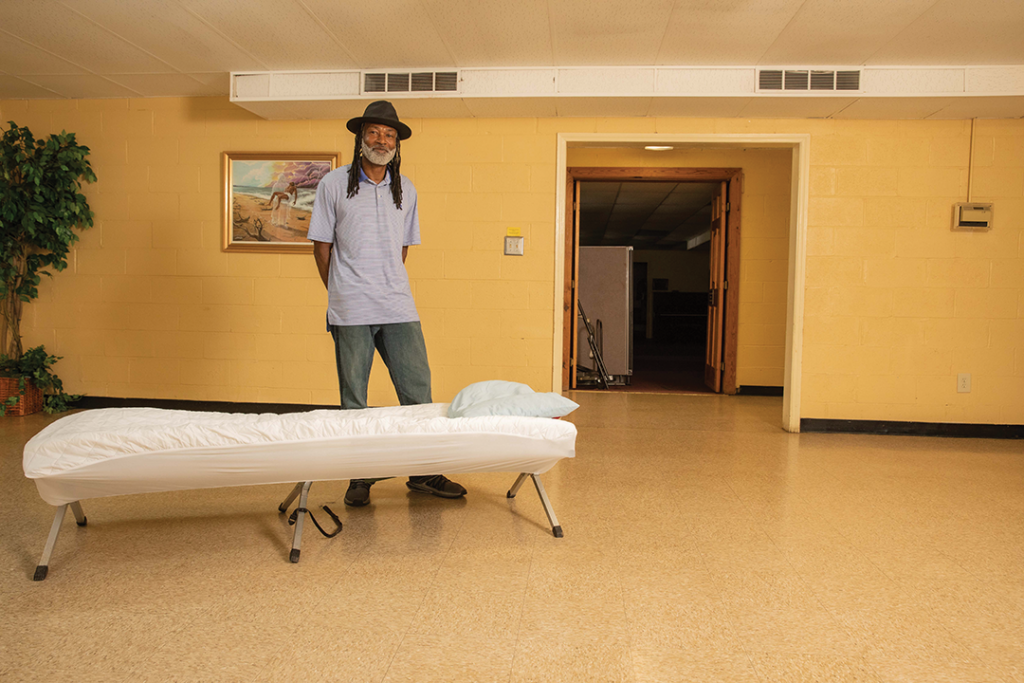Jeremy Houston credits the Celebrate Recovery program at Eastridge Community Church with rescuing him from substance abuse and the dead end that often accompanies it.
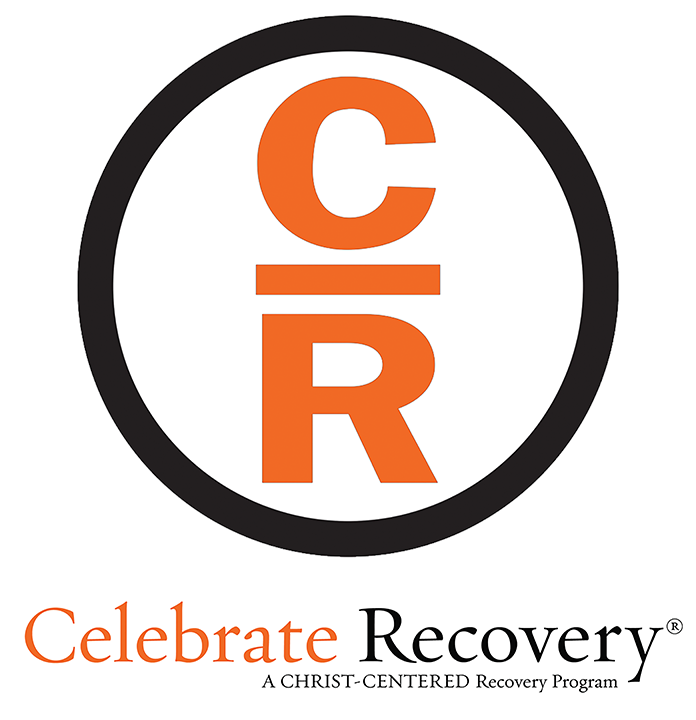
Jeremy Houston appeared to be living the good life, from the outside. Though he had gone through a divorce several years earlier, he now had custody of his four daughters. Together, they shared a nice, five-bedroom house just off The Square in Covington. However, it was Christmas Eve 2017 and Houston, the co-owner of a successful plumbing business, was rapidly sinking toward rock bottom.
His dad died just a little over a year earlier, and Houston had turned increasingly to alcohol to ease his pain and grief. When his mother and sister arrived at his house to celebrate the holiday with him, he was not in a festive mood. “I was drinking. I was ugly. I ran them off,” he said. With his girls visiting their mother, the house was empty and quiet. “I spent Christmas Eve here alone,” he said, “in tears.”
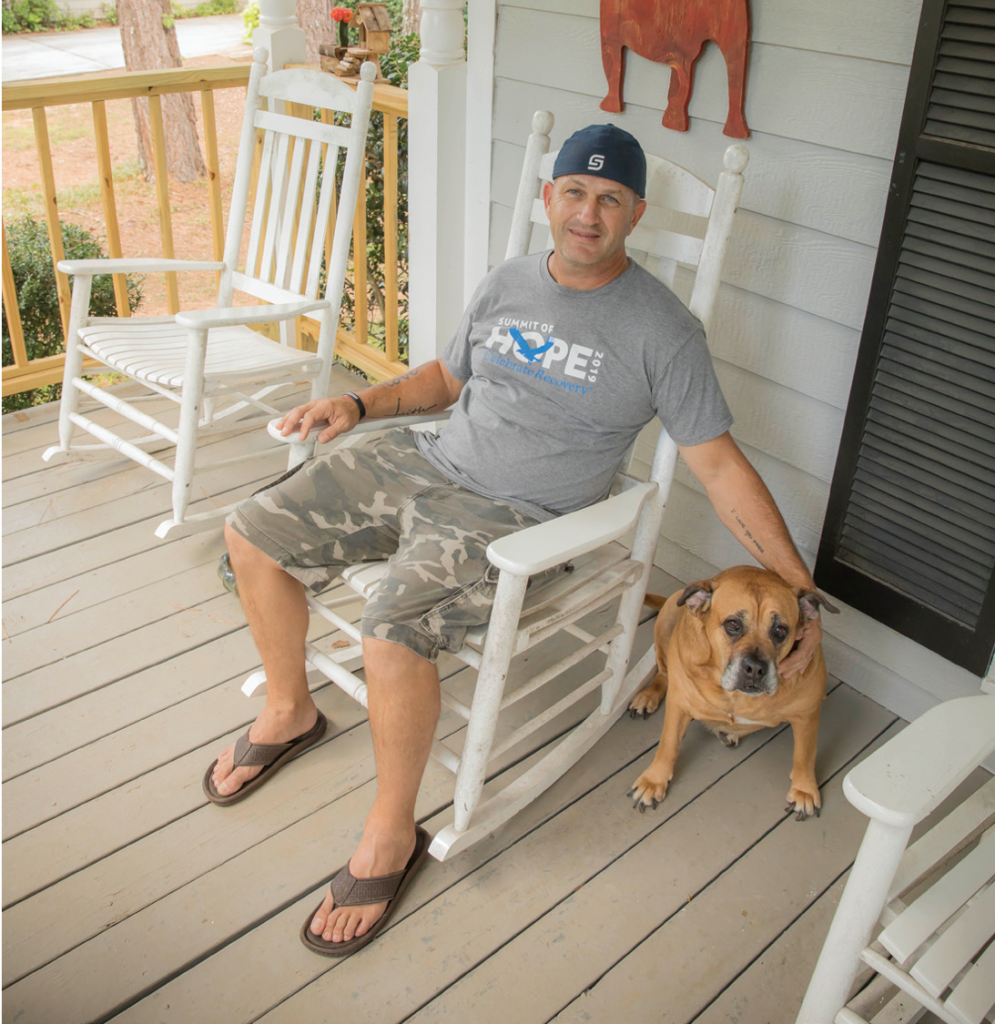
‘I’VE GOT BETTER PLANS’
Growing up, Houston idolized his father, a plumbing contractor, and was determined to follow in his steps. “As a 12-year-old, I decided I was going to be a plumber, too,” he said. He started to work with his dad and began learning the trade. In more ways than one, Houston was on the road to becoming like his dad. As a young adult, he would come to share a common trait with him that neither could acknowledge—they were alcoholics. Though Houston continued to think of his dad as his hero, he also experienced him as a source of deep pain. “I was trying to live up to his expectations and [was] always kind of feeling like I fell short,” he said. By the time Houston was 18 years old, the desire to please had been largely replaced by a penchant for reckless living.
After violating probation for a criminal trespassing charge, Houston spent 11 months behind bars. Upon his release from jail, he went back to his old life: same job, same friends, same alcohol and drugs. By age 20, he had received his first DUI conviction. Though seemingly headed down a destructive path, his life was about to change in a way he never expected.
“One thing that amps me up is to see people come in [and] their lives are in such a mess, but they grasp hold of the Lord and they grasp hold of this process and they find hope and then, later on, life change. That’s what keeps me going.”
Celebrate Recovery Pastor Brad Rutledge
While working on a roof as a gutter installer, he slipped and fell to the ground 30 feet below, shattering both ankles. Houston called it his first “encounter” with God. “He basically threw me off of that roof,” he said. “He’s like, ‘I’ve got better plans for you. This is going to hurt, but it’s going to be what’s best for you’—and it was.” Houston spent the next six months in a wheelchair and an additional six months in intensive physical therapy. He moved in with his mother, and once he was able, he went back to work with his dad as a plumber.
The next 10 years saw him get married, start his own plumbing business and become the father of four girls. Remarkably, he did not drink alcohol at all during that entire period. “I was doing very well,” he said. However, all was not well, as his marriage ultimately ended in divorce and he made the difficult decision to shut down his plumbing business.
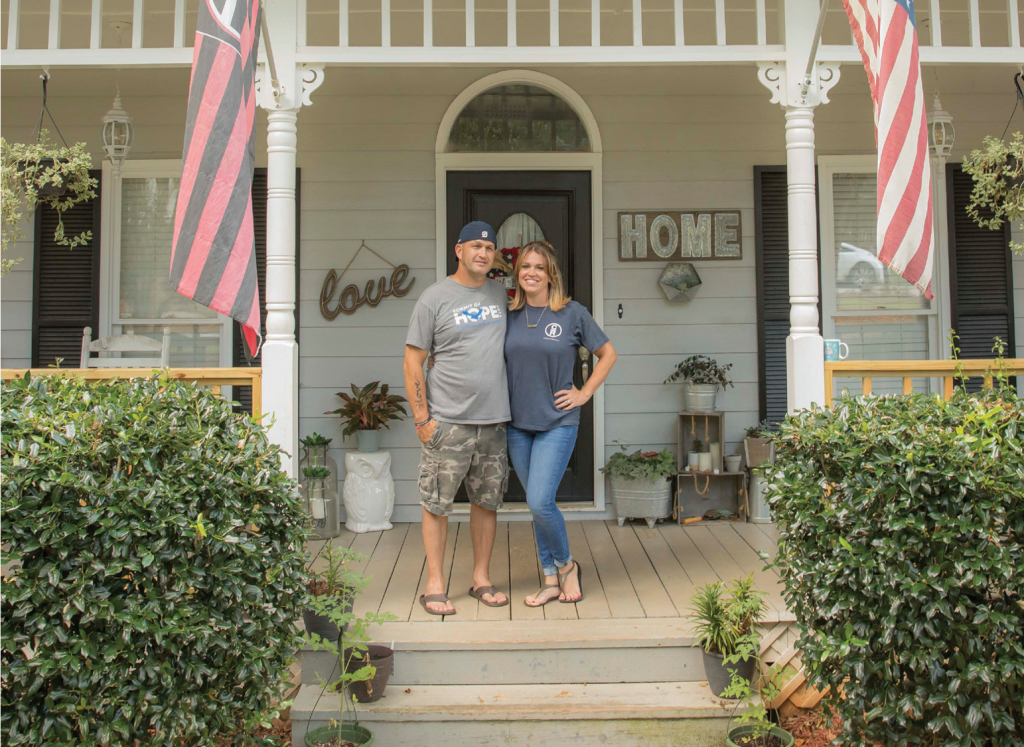
Once again, Houston turned to alcohol, seeking solace in bars and drinking buddies. It was not long before he received two DUI convictions within three months of each other. “I was looking at a year in jail,” he said. The prospect of having to share the devastating news with his four young children motivated Houston to place himself in “DUI court.” Essentially, it meant that for two years, he would wear an ankle monitor that could detect whether or not alcohol was in his blood. “I didn’t drink for 730 days, which is exactly two years,” he said. “I drank on Day 731.”
Though Houston continued to drink, he managed to stay out of trouble. In fact, his professional life was on the verge of improving dramatically. Through a series of chance meetings, Houston and friend Donnie Armour managed to land several large plumbing accounts, and, “… with just $1,000 and a mini-van,” Houston-Armour, Inc., was born.
TRUTH AND CONSEQUENCES
Although Houston had seen signs of alcoholism in his father, he had no idea just how serious the situation had become, even after his dad was admitted to the hospital with complications. “I’m still not understanding really what is wrong with him, because this is my hero,” he said. “Drinking’s not going to get him.” However, the elder Houston was suffering from liver failure, and his condition deteriorated steadily. Forty days after entering the hospital, he was dead. Houston went into a self-described downward spiral. “I drank and was in a dark place and mad at every single person that came around me,” he said. A little more than a year went by and life was not improving. After he chased off his mother and sister and spent the Christmas holiday alone, Houston was coming to the end of himself.
One day while at work, he had to drive by the road where his dad used to live. As emotions spilled out in a gush of tears, he turned on the radio. “I just needed to hear something positive, anything positive,” he said. Houston found what he was looking for on a station that broadcast messages from a well-known preacher. “I listened to one, and then another, and another. It was changing me,” he said in measured, emphatic tones. “It was like he was talking to me.”
When Armour suggested he visit Eastridge Community Church in Covington, Houston followed through. As with the radio preacher, he felt as if Pastor Scott Moore was speaking to him personally. Encouraged and inspired by what he heard, he continued to attend ECC.
“I didn’t quit drinking then,” he said. “I knew I had hit rock bottom, but I was going to quit drinking on my own. I had just watched my dad die from it. It wasn’t going to do that to me.” Though Houston managed to control his drinking, attempts to put an end to years of dependency fell short. “There was something else that I needed to take me to that next level,” he said, “to con- vince me that God still has better plans for me.”
Those plans included a woman named Ali, an ECC member and a singer on the church’s worship teams. Houston and Ali had only recently met but were getting to know and show interest in each other. When she invited him to a Celebrate Recovery meeting at ECC, he agreed. Houston recalled the moment when Ali walked on stage during worship time and sang directly in front of him.
“I really started to realize that there was no way that I was going to be able to be an alcoholic and be the person that I was and be able to have a relationship with this woman,” he said. “I truly felt that God sent her to me as the next step that I needed to be recovered.”
In Ali, Houston found a friend whose journey was in some ways similar to his own. Both were divorced with children, and both had a deep desire for wholeness and healing from troubled pasts. However, he saw something different in her, something redemptive, thanks to Celebrate Recovery.
PATHWAY TO HEALING
ECC was the first church in Georgia to offer the Celebrate Recovery program, which utilizes the 12 steps from Alcoholics Anonymous and the eight principles from The Beatitudes. Brad Rutledge, who has led CR at Eastridge since its inception almost 19 years ago, made it clear that the program was not just for those struggling with drugs and alcohol.
“It is a large umbrella ministry for the whole family,” he said, “and we have other people come to us with what we call ‘hurts, habits and hang-ups.’ That includes everybody, so CR is for everyone.”
Currently, 18 Open Share groups totaling about 240 people deal with alcohol and drugs, anger, sexual addiction and abuse, marriage, divorce, co-dependency, food and various others issues. These groups meet every Thursday after Large Group, which begins with a worship time and includes instruction on one of the 26 lessons found in the Step Study.
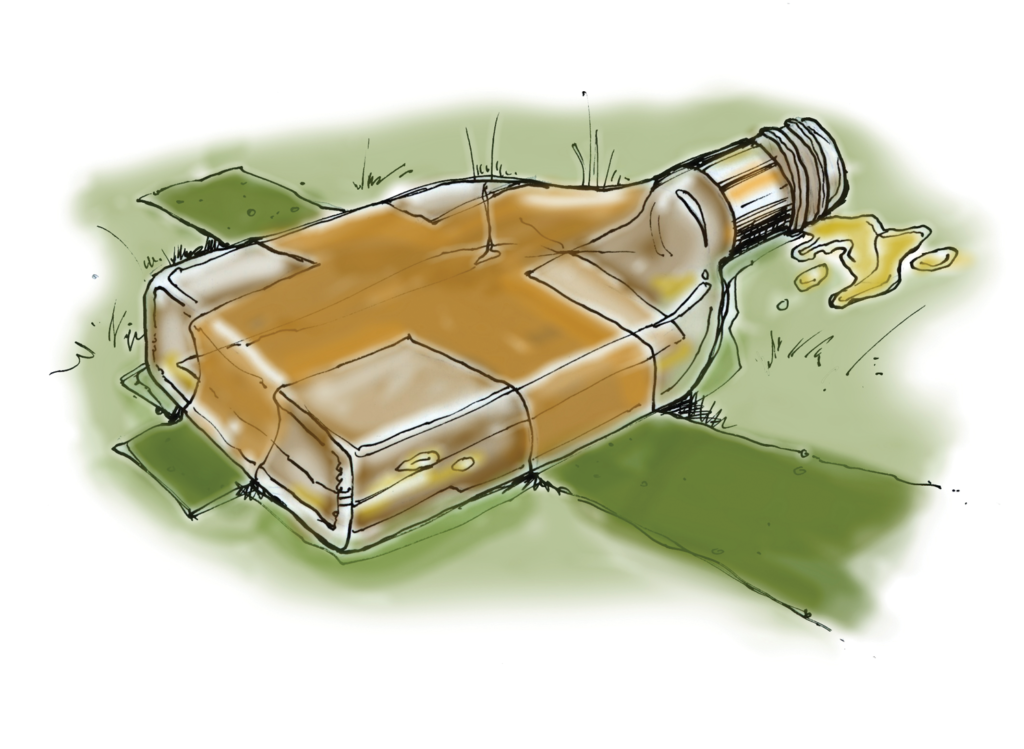
Though a success rate for those going through Celebrate Recovery is difficult to measure, Rutledge remains convinced of its effectiveness. “I believe that CR is the greatest example of Christianity making a difference in this world today,” he said. He cited the evidence of changed lives. “One thing that amps me up is to see people come in [and] their lives are in such a mess, but they grasp hold of the Lord and they grasp hold of this process and they find hope and then, later on, life change,” Rutledge said. “That’s what keeps me going.” He believes Celebrate Recovery has also brought together churches and denominations, as the program is now offered in 137 churches in Georgia and more than 34,000 churches worldwide.
Houston went all-in when he began attending CR regularly and immediately enrolled in a Step Study group. He stopped drinking and smoking marijuana. “I quit it all,” he said. “Celebrate Recovery saved my life.” He now leads a Step Study Group and co-leads an Open Share Group, as he reaches back to help others. “He came in [to Celebrate Recovery and] knew he needed to change,” Rutledge said. “He embraced the Lord and is living out these principles. Jeremy is really the epitome of what I’d say is a trophy of God’s grace.”
Through CR, Houston continues to learn to defeat his addictions, as well as to understand the reasons behind them. He has company this time. “You have to have God,” Houston said, “and you have to have a support team.” On Oct. 20, 2018, much of Houston’s support team gathered on his front lawn as he and Ali exchanged wedding vows from the porch. “We probably had 60 people here, most of them from CR,” he said, “because when you make those kinds of steps to change your life, you have to change your playmates and playgrounds. If you don’t, you’re not going to stay sober.”
These days, the newly married Houstons pursue their recoveries together. “There’s no such thing as Celebrate Recovered,” he said. When Ali moved in, she brought her two sons with her, so the Houstons have undertaken all the challenges that blended families experience. He reflected on how God changed and rearranged his life. “The chairs used to be on that side of the porch,” Houston said while pointing to a now-vacant space, where he used to spend mornings and evenings in his rocker drinking and smoking marijuana. “These chairs got moved—when I got sober—to this side of the porch. I didn’t do that consciously. I think I subconsciously did it because God’s telling me, ‘The old life was over there. Your new life is on this side of the porch now.’”
Click here to read more stories by David Roten.

